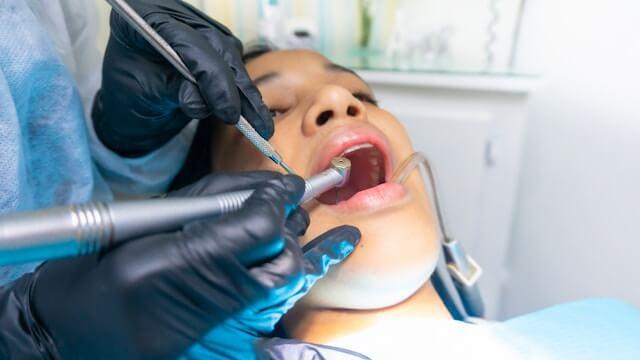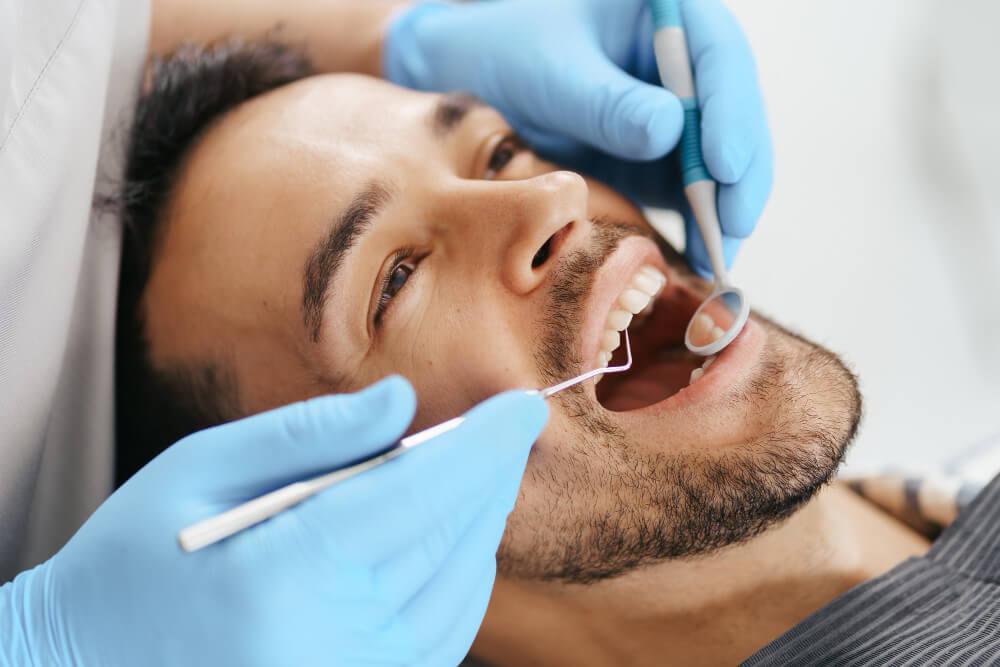
A dental abscess is a painful condition caused by an infection in or around a tooth. It can lead to severe discomfort and, if left untreated, serious health complications. While seeking professional dental care is crucial, understanding dental abscess self-care can be a valuable interim solution.
This article explores effective self-care strategies to manage the symptoms of a dental abscess, highlighting the importance of dental abscess self-care in preventing the progression of the infection until professional treatment is obtained.
Recognizing the signs of a dental abscess can help you seek prompt professional help. Common symptoms include:
A dental abscess is a serious condition that requires professional treatment to remove the infection and prevent complications. Here's why a dentist's intervention is critical:
A dentist can accurately diagnose the type and severity of the abscess and determine the most appropriate treatment course. In severe cases, this may involve draining the pus, performing a root canal, or extracting the tooth.
During dental abscess self-care, over-the-counter medications can help manage pain, but dentists can offer stronger pain relief options if necessary. Seeking professional help ensures effective pain management and proper treatment for the underlying infection.
Untreated dental abscesses can lead to serious complications like bone loss, infection spreading to other parts of the head and neck, and even life-threatening conditions. Early intervention by a dentist helps prevent these complications.
While professional dental treatment is necessary for complete healing, some at-home strategies can offer temporary relief from symptoms during dental abscess self-care:
This simple yet effective method helps reduce inflammation and dislodge food debris around the infected tooth. Mix half a teaspoon of table salt in a cup of warm water and gently swish for 30 seconds, several times a day.
Over-the-counter pain relievers like ibuprofen or acetaminophen can help manage the discomfort associated with a dental abscess. Always follow the recommended dosage on the label and consult your doctor if you have any underlying health conditions.
Applying a cold compress to the outside of your cheek near the infected tooth can help reduce swelling and offer temporary pain relief. Wrap an ice pack in a towel to avoid direct skin contact and apply it for 15-minute intervals with breaks in between.
During dental abscess self-care, opt for soft, easily chewable foods like mashed potatoes, yogurt, or applesauce. This reduces pressure on the infected tooth and makes chewing less uncomfortable.
Maintain good oral hygiene by brushing your teeth twice daily and flossing gently around the infected tooth (avoiding direct contact with the abscess itself) to remove food debris and prevent further bacterial growth.

While dental abscess self-care can offer some temporary relief, it's crucial to seek immediate professional help if you experience:
Understanding the potential complications of an untreated dental abscess further emphasizes the importance of seeking professional help. Here's a closer look at some serious consequences that can arise:
The infection from a dental abscess can spread to nearby tissues, including the jawbone, lymph nodes, and even reach the bloodstream. This can lead to serious health problems like osteomyelitis (bone infection), cellulitis (skin infection), and sepsis, a life-threatening condition.
Left untreated, a dental abscess can destroy the surrounding bone and tissue supporting the tooth. This can eventually lead to tooth loss, requiring further dental procedures like bridges or implants to replace the missing tooth.
An untreated dental abscess can cause persistent and throbbing pain, severely impacting daily activities such as eating, sleeping, and concentrating. Seeking prompt treatment and implementing self-care measures can help alleviate discomfort and promote healing.
In severe cases, a dental abscess can lead to significant facial swelling and deformity, affecting one's appearance and overall well-being. Prompt professional intervention is crucial to prevent such complications and restore oral health.
Following successful treatment for a dental abscess, your dentist may recommend additional strategies for long-term management to prevent recurrence:
Maintaining excellent oral hygiene is crucial for preventing future infections. Consistently brushing twice a day, flossing daily, and using mouthwash can significantly reduce the risk of dental abscesses and other oral health issues.
To maintain optimal oral health, make it a priority to schedule routine dental checkups and cleanings. These appointments allow professionals to detect issues early and provide necessary treatments to prevent complications.
Certain underlying health conditions, like diabetes, can increase the risk of dental infections. Effectively managing these conditions can help reduce one's susceptibility to future abscesses.
A dental abscess can be a stressful and uncomfortable experience. Here are some tips for managing the stress associated with a dental abscess and dental abscess self-care:
A throbbing toothache and facial swelling are clear signs you might be dealing with a dental abscess. Don't wait for the pain to worsen or the infection to spread. At Charlotte Emergency Dental, we understand the urgency of addressing dental emergencies like abscesses. Our team of experienced dentists is available to provide prompt diagnosis, treatment, and pain relief.
We offer a comfortable and welcoming environment to ease your anxiety during this uncomfortable time. We'll work quickly to assess your situation, explain treatment options, and get you on the road to recovery.
Don't let a dental abscess disrupt your life any longer. Schedule an appointment with Charlotte Emergency Dental. We offer flexible scheduling options to accommodate your needs.

Dental abscesses are a painful and potentially serious condition. While dental abscess self-care strategies can provide temporary relief, seeking professional dental treatment is crucial for complete healing and preventing complications.
By understanding the symptoms, the importance of professional intervention, and available self-care practices, you can manage your symptoms and seek timely help for a full recovery. Remember, good oral hygiene practices are essential to prevent future dental abscesses and maintain optimal oral health.

We have temporarily updated our hours, reflected below.
MONDAY to FRIDAY
9:00am – 7:00pm
SATURDAY to SUNDAY
9:00am – 3:00pm
Save time, print online! Fill out forms online before your first visit to shorten your appointment time with us.